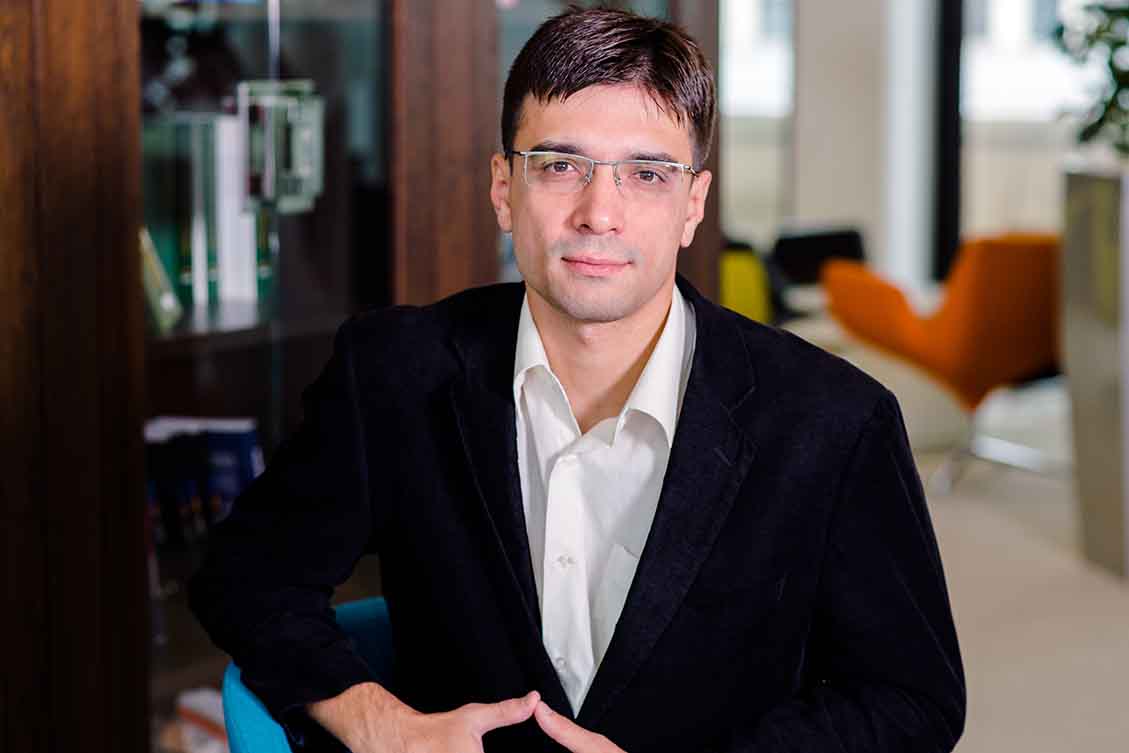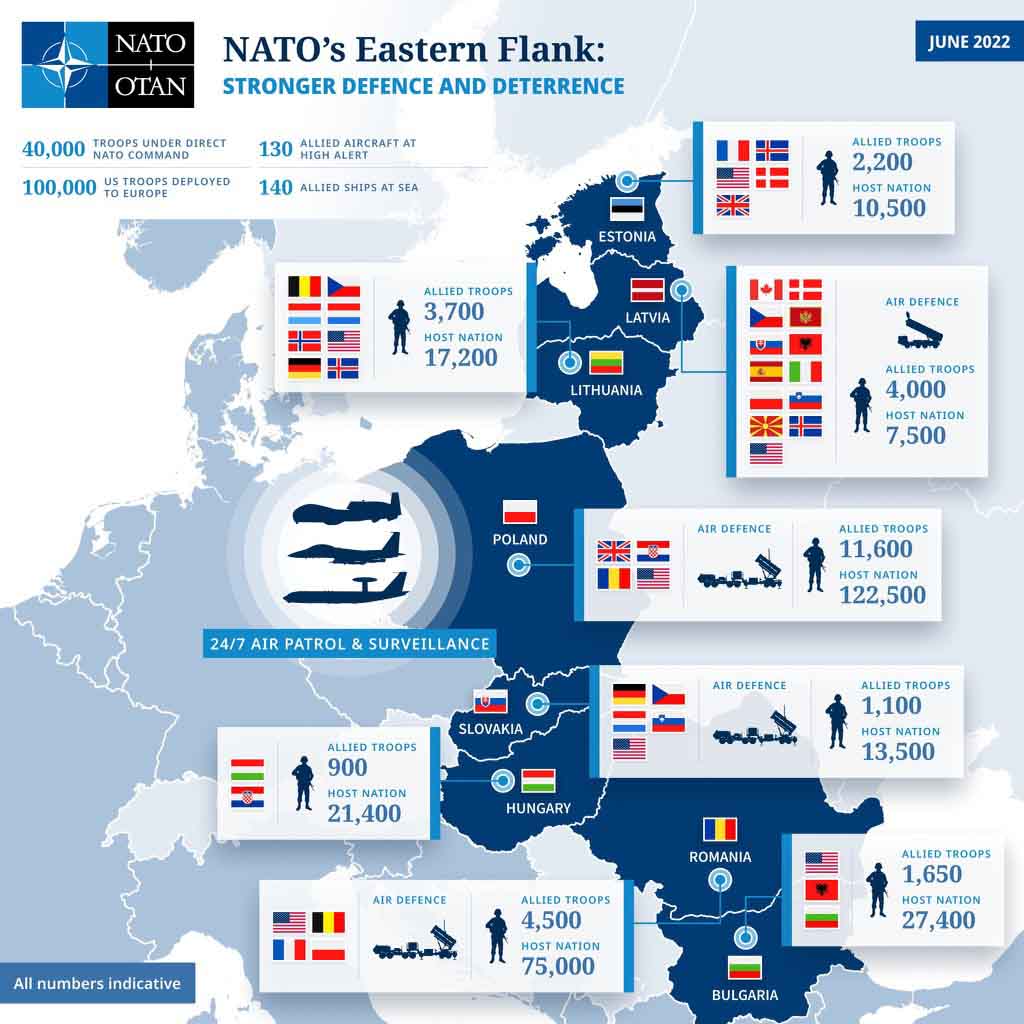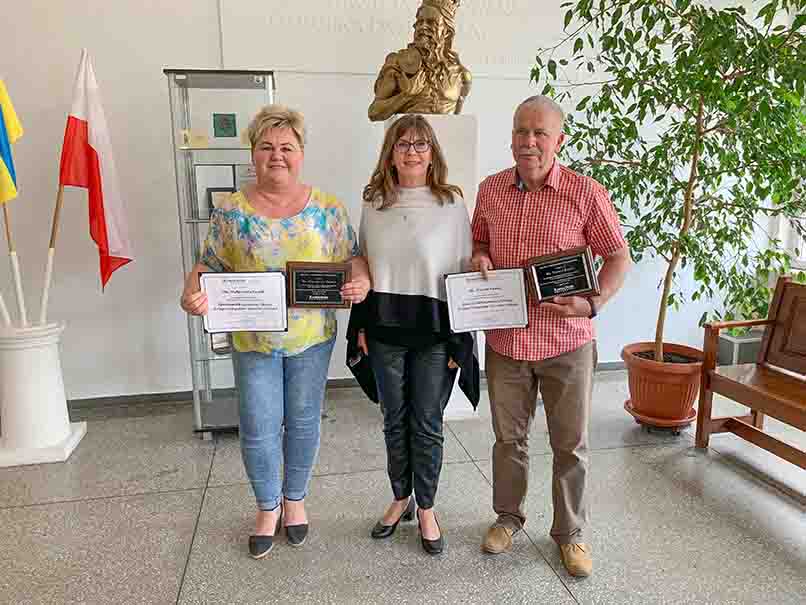Waldemar Biniecki, Kuryer Polski's Editor-in-Chief, interviews Consul General Patrick T. Slowinski who is retiring from diplomatic service, having most recently served as the U.S. Consul General in Kraków, Poland.
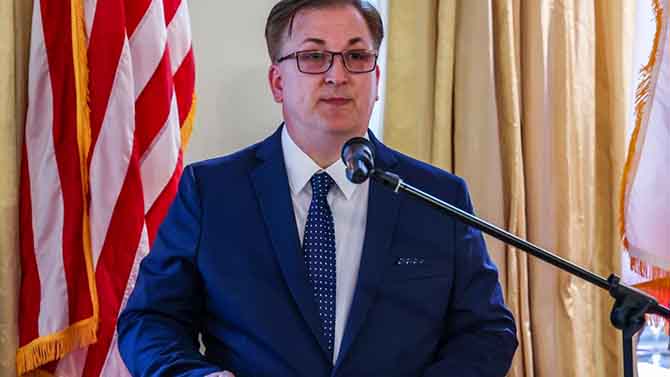
U.S. Consul General Patrick Slowinski (Source: lovekracow.pl)
Waldemar Biniecki: You are an American diplomat of Polish origin with the longest history of diplomatic service in Poland. What were your first professional contacts with Poland?
Patrick Slowinski: I attended Polish academic programs as a Polish-American student in Gdańsk and Sopot in the 90s and later worked for the State Department as an English Language Fellow in the early 2000s. I have many friends and family in Poland, so I will continue to visit often after I depart this week for the United States. My first professional contacts in Poland were often in my capacity as an English teacher to Polish elementary and high school students.
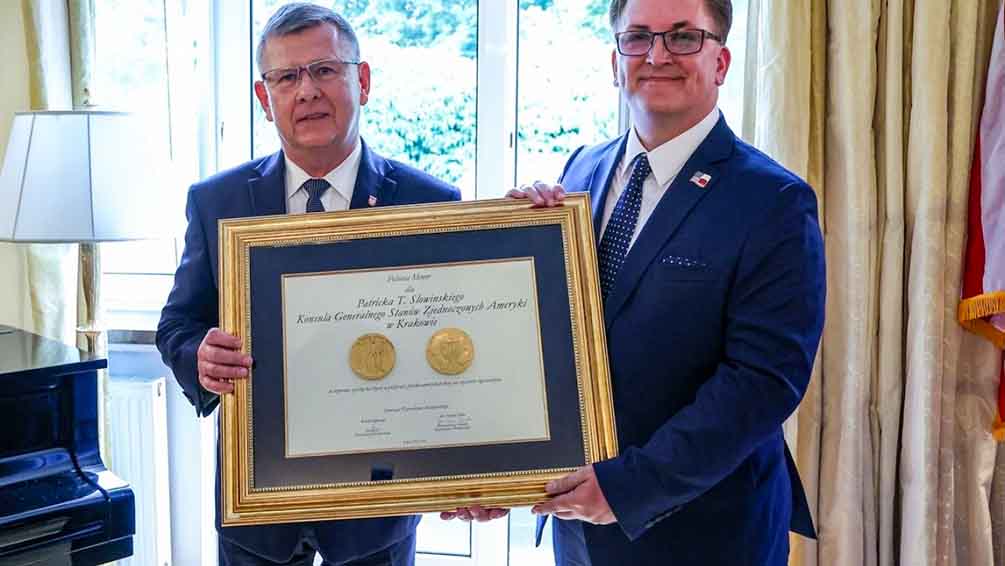
Consul Slowinski receiving the Polonia Minor award from Marshal Kozłowski (Source: lovekracow.pl)
WB: Unfortunately, you are finishing your diplomatic service in Kraków. You received the Award of the Lesser Poland Voivodeship — Polonia Minor — from Marshal Witold Kozłowski. How will you remember this time in Kraków?
PS: My paternal grandfather was born in the village of Łęki Dolne in the Subcarpatian Voivodeship (Województwo Podkarpackie), so I have strong Polish roots in southeastern Poland. I have thoroughly enjoyed my assignment to southern Poland as it was truly cudowne marzenie (a wonderful dream) to return to the vicinity of the village of my grandfather to serve as the U.S. Consul General in Kraków. My consular district comprised six provinces in southern Poland including Małopolska (Lesser Poland). Our cooperation with the Governor and Marshal was outstanding and we achieved a lot together, despite COVID and the war in the neighboring Ukraine. I was humbled by the award from the Marshal and grateful for his constant support. Governor Kmita has been a great partner as well, and Kraków Mayor, Jacek Majchrowski, also became a great advocate for even stronger U.S.-Polish relations in Kraków. I was honored to be awarded the Honoris Gratis award by Mayor Majchrowski at our last official meeting.
WB: We know that like Kuryer Polski, you are originally from Milwaukee, Wisconsin. Could you please introduce readers to Milwaukee, where you lived, what schools you graduated from, and how often you visit your hometown?
PS: I spent a lot of time at my grandparents’ home in the southside Polish neighborhood on Oklahoma Street. Even though my family moved to Texas, my heart remains in Milwaukee and I plan to retire there.

Consul Slowinski's grandparents' house in Milwaukee
WB: There is a war in Ukraine. Poland has welcomed around 3 million refugees into its homes, mainly women and children. From an American diplomatic point of view, what does the current situation look like after the Madrid NATO summit in Poland?
PS: Our two countries have never enjoyed tighter defense cooperation. We’ve increased our military presence in Poland to about 8,000 troops, including those now at our permanent base named for the Polish and U.S. military, General Tadeusz Kościuszko. This is a critical step for the national security of Poland, the United States, and NATO Allies. Poland is a vital member of NATO, and the U.S. is committed to our shared defense.
WB: Poland has donated its post-Soviet military equipment to Ukraine. Poland is the second largest supplier of military equipment after the United States. What is the situation of the planned "rollover" or the replacement of Polish military equipment with American equipment?
PS: Poland, the U.S., and our allies continue to support the Ukrainian people as they defend their country and their democracy, and we will continue to do so. While I can’t speak to the specifics of military equipment — that’s a question for the Department of Defense — I can tell you that we remain unified with our allies and steadfast in the NATO commitment to shield and protect one another. We appreciate and recognize Poland’s commitment, and how they have stepped up, adding their own forces and capabilities to ensure our collective defense.
WB: Thank you for the interview and we warmly invite you, Consul Slowinski, to Milwaukee for a meeting with the Polish Diaspora and with Kuryer Polski.
PS: Thank you for inviting me. It was a pleasure and I look forward to seeing you and many of our Polish American friends in person, in Milwaukee, soon!
From the official page of the U.S. Embassy and Consulate in Poland:
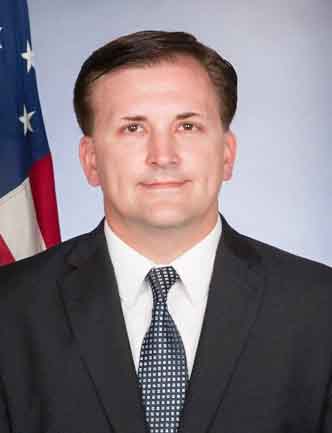
Consul General Patrick T. Slowinski (Source: U.S. Embassy and Consulate in Poland)
Patrick T. Slowinski is a career member of the U.S. Foreign Service. He began his diplomatic career as a Vice-Consul at U.S. Embassy Warsaw. Since that time, Patrick has had multiple assignments covering economic issues overseas. Following Warsaw, Patrick served in Ukraine, Turkmenistan, Afghanistan, and most recently Russia.
Patrick recently served as the Deputy Economic Counselor at U.S. Embassy Moscow 2016-2018, where he led the Embassy’s Macroeconomic, Energy, and Socioeconomic Unit.
His most recent assignment in Washington D.C. was as the Poland Desk Officer in the Office for Central Europe in the State Department’s Bureau of European and Eurasian Affairs. In that role Patrick covered both political and economic bilateral issues related to Poland. He worked closely with the Polish Embassy in Washington D.C. to strengthen the U.S. bilateral relationship, while using the Polish language.
Patrick also had overseas assignments in Ukraine, Turkmenistan and Afghanistan 2009-2013, where he covered economic, energy, mining sector, and commercial issues. During those postings, he often employed his Russian and Ukrainian language skills.
Patrick’s extensive energy experience resulted in an assignment at the Office of the United States Trade Representative Executive Office of the President of the United States of America, where he was Director for South and Central Asia and Iraq. He also returned to the Department of State’s Bureau of Energy Resources to serve as Senior Eurasian Energy Officer, covering over twenty countries.
Before becoming a diplomat, Patrick worked as a university administrator, international student academic coordinator, and a linguistics and Student Development faculty member. Patrick has also worked as both a theoretical and applied linguist. He received a doctoral degree in education in 2002, and completed post doctoral work at Kansas State University. Patrick is also continuing his education by pursuing a degree in Industrial and Occupational Psychology at the Harvard Extension School.
Patrick speaks fluent Polish, Russian, Ukrainian, and French. He has four children and one grandchild.





